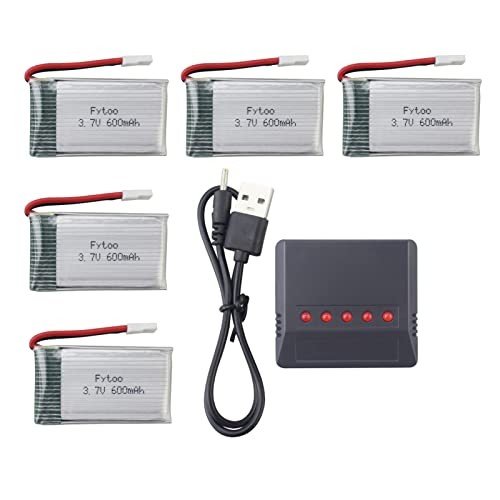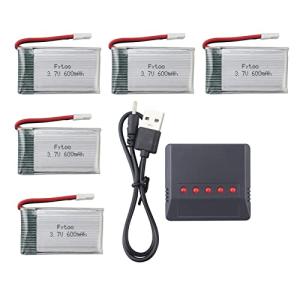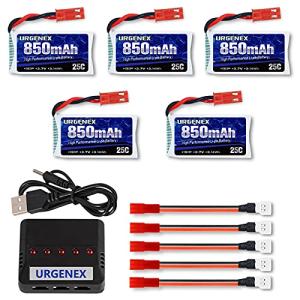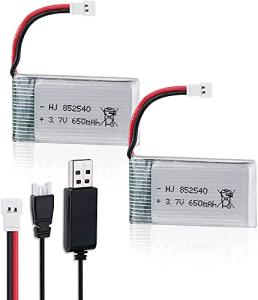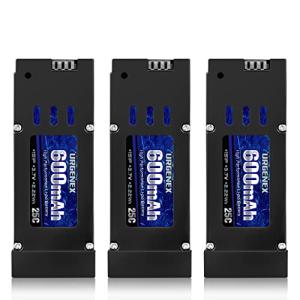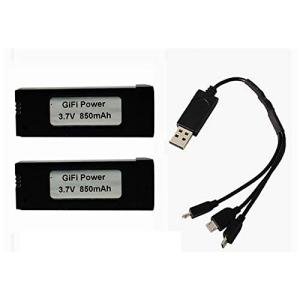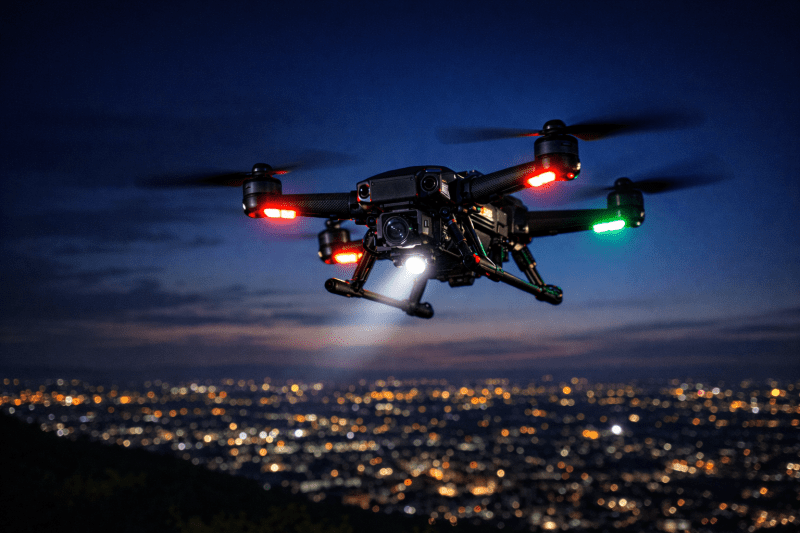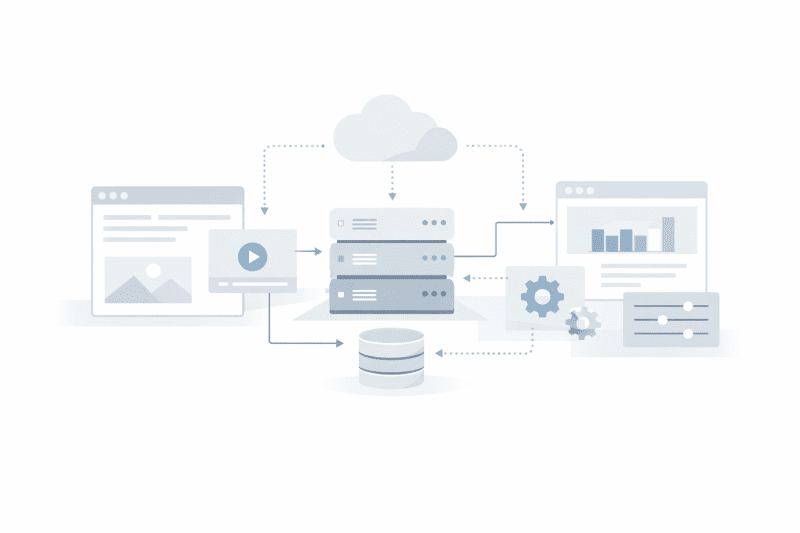Understanding Drone Battery Types and Their Benefits
Choosing the right drone battery can make a significant difference in the overall performance of your drone. Before making a purchase, it's important to understand the different types of drone batteries and their benefits.
Lithium Polymer (LiPo) Batteries
LiPo batteries are the most common type of battery used in drones due to their high energy density and low weight. They are made up of thin, flexible sheets of lithium-ion cells, which allows them to be shaped to fit the drone's design. LiPo batteries also have a high discharge rate, meaning they can quickly provide a large amount of power when needed. However, they require careful use and handling, as they can be sensitive to temperature changes and can be dangerous if not charged or handled properly.
Lithium-Ion (Li-ion) Batteries
Li-ion batteries are similar to LiPo batteries, but they are typically larger and have a higher capacity. This makes them ideal for larger drones that require longer flight times. They have a lower discharge rate compared to LiPo batteries, meaning they cannot provide as much power at once, but their higher capacity allows them to last longer. Li-ion batteries are also less sensitive to temperature changes compared to LiPo batteries.
Nickel-Cadmium (NiCad) Batteries
NiCad batteries were once a popular choice for drone batteries due to their reliability and long lifespan. However, they have been largely replaced by LiPo and Li-ion batteries due to their heavy weight and lower energy density. NiCad batteries also have a lower capacity, meaning they cannot sustain flight for as long as LiPo or Li-ion batteries. They are still used in some drones, particularly in industrial or military applications.
Nickel-Metal Hydride (NiMH) Batteries
NiMH batteries are similar to NiCad batteries, but they have a higher energy density and are less toxic. They are also cheaper than LiPo and Li-ion batteries, making them a more cost-effective option. However, they have a lower capacity compared to LiPo and Li-ion batteries and cannot provide as much power at once.
Choosing the right drone battery depends on your specific needs and the type of drone you have. LiPo and Li-ion batteries are typically the best option for most consumer drones, as they offer the best combination of energy density, weight, and power output. However, it's important to handle all types of drone batteries with care and follow the manufacturer's instructions for charging and use to ensure safe operation of your drone.
How to Get the Most Out of Your Drone Battery Life
How to Get the Most Out of Your Drone Battery Life
Getting the most out of your drone battery life is essential for any drone pilot. Here are a few tips to help you get the most out of your drone batteries:
- Keep batteries cool: Drone batteries are sensitive to temperature. You should keep them cool in order to extend their life. Avoid charging them in direct sunlight or in hot environments.
- Charge Properly: Make sure to use the correct charger for your drone battery and follow the instructions carefully. Overcharging or undercharging can lead to battery malfunction.
- Turn off when not in use: Make sure to turn off your drone when not in use. This will save battery life and make it last longer.
- Manage Flight Time: Plan your flight time properly to maximize the use of your battery. Try to avoid flying in high-wind or extreme weather conditions as it can decrease battery life.
- Store Properly: Like any rechargeable battery, your drone battery will eventually lose its charge over time, even if it’s not being used. Store it in a cool and dry place, ideally at room temperature with around a 50% charge if you don’t plan on using it for a while.
Tips for Proper Drone Battery Care and Maintenance
Drone batteries are an essential component of any drone, and proper care and maintenance can ensure that your drone remains in top condition. Here are some tips for caring for and maintaining your drone battery:
- Store your battery properly: When not in use, store your battery in a cool, dry place, away from direct sunlight. This will help to prevent degradation of the battery, and will extend its lifespan.
- Charge your battery correctly: Use a high-quality charger that is appropriate for your battery type, and follow the manufacturer's instructions carefully. Overcharging or undercharging your battery can cause damage, and can even be dangerous.
- Check for damages: Before each use, inspect your battery for any signs of physical damage, such as cracks or swelling. If you notice any damage, do not use the battery, and replace it immediately.
- Keep your battery clean: Dirt and grime can cause corrosion and damage to your battery, so it is important to keep it clean. Wipe it down with a soft, dry cloth after each use to remove any debris.
- Do not expose your battery to extreme temperatures: Exposure to extreme heat or cold can cause damage to your battery, so avoid leaving it in your car during hot or cold weather.
- Dispose of your battery correctly: When it is time to replace your battery, dispose of it properly. Do not throw it in the trash, as it can be harmful to the environment. Instead, check with your local waste management facility for disposal options.
By following these tips, you can ensure that your drone battery remains in top condition, and will provide you with reliable performance for years to come.
ZYGY 5pcs 3.7V 600mAh Lithium Batteries & Charger
Power up your drone adventures with reliable batteries and a convenient charger for extended flight time
Product information
SGD 35.89
Product Review Score
4.49 out of 5 stars
184 reviews